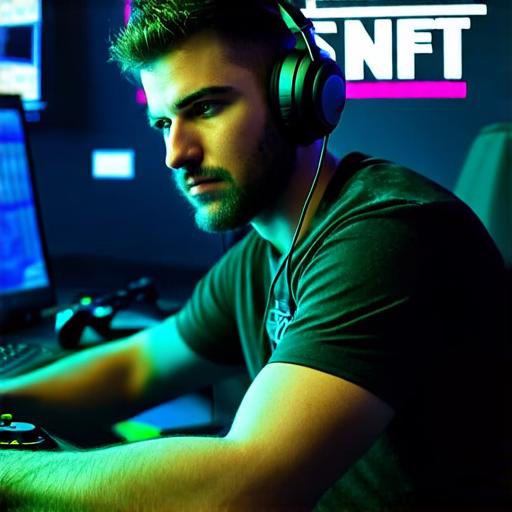NFTs, or non-fungible tokens, have been making waves in the gaming industry for years now. These digital assets allow players to own unique and exclusive items within games, ranging from rare weapons to in-game real estate. However, despite their potential benefits, gamers seem resistant to NFTs.
Firstly, let’s define what NFTs are and how they work within games. NFTs are essentially digital assets that are stored on blockchain technology, making them unique and non-replaceable. This means that once an NFT is created, it cannot be replicated or duplicated, giving it immense value within the game’s economy.
Gamers can use NFTs to acquire exclusive items and content within games, such as rare weapons or limited edition in-game real estate. These items often have a high demand from other players, making them valuable commodities on the open market. In addition, gamers can also use NFTs to create their own digital art or collectibles, giving them a sense of ownership and pride within the game’s community.
Despite these benefits, gamers seem resistant to NFTs for several reasons. One reason is that NFTs are still relatively new technology, and many gamers may not fully understand how they work or why they should care about them. This lack of knowledge can lead to mistrust and skepticism towards NFTs, making it difficult for developers to convince gamers of their value.
Another reason is that NFTs often come with a high price tag. The cost of creating and owning an NFT can be quite expensive, which may deter some gamers from investing in them. This is especially true for smaller game studios or independent developers who may not have the financial resources to create and market NFTs effectively.
Lastly, some gamers may feel that NFTs detract from the core gaming experience. They may argue that the focus on collecting and trading digital assets takes away from the fun and immersion of playing the game itself. In addition, NFTs can also be seen as a form of pay-to-win, where players who have more money to spend can acquire better items and gain an unfair advantage over others.
Despite these challenges, there are several things that game developers can do to address gamers’ resistance to NFTs. One solution is to educate gamers about the benefits of NFTs and how they can enhance the gaming experience. Developers can create tutorials or guides that explain how NFTs work, as well as how they can be used within games to acquire unique items and content.
In addition, developers can also consider making NFTs more affordable by offering them at a lower price point or creating more accessible options for players with smaller budgets. This could include offering free or low-cost NFTs, or creating in-game events or challenges that reward players with NFTs as they progress through the game.

Finally, developers can address concerns about NFTs detracting from the core gaming experience by ensuring that NFTs are integrated seamlessly into the game and do not take away from the overall fun and immersion of playing. This could include creating NFTs that are tied to specific gameplay mechanics or creating in-game events that allow players to earn NFTs as they play, rather than just purchasing them outright.
In conclusion, while gamers may be resistant to NFTs at first, there are several solutions that game developers can implement to address this resistance and promote the adoption of NFTs within gaming. By educating gamers about the benefits of NFTs, offering more affordable options, and integrating NFTs seamlessly into games, developers can help gamers see the value in NFTs and how they can enhance their overall gaming experience.
